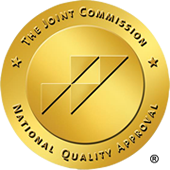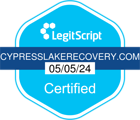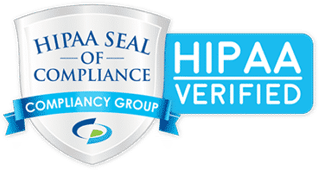Eye Movement Desensitization and Reprocessing Therapy (EMDR) for Addiction Treatment in East Texas
Healing from addiction is rarely a straightforward journey. For many, substance use is rooted in trauma, painful memories, or unresolved emotional wounds.
Eye Movement Desensitization and Reprocessing Therapy (EMDR) is an evidence-based approach that helps individuals address these underlying issues to achieve lasting recovery. At Cypress Lake Recovery, we integrate EMDR therapy into addiction treatment to help individuals release the burdens of trauma, develop healthier coping strategies, and build a future rooted in resilience.

What is Eye Movement Desensitization and Reprocessing Therapy (EMDR)?
Eye Movement Desensitization and Reprocessing Therapy, widely known as EMDR, is a modality of therapy developed in the late 1980s. Originally designed to treat post-traumatic stress disorder (PTSD), EMDR is now used worldwide to help people process traumatic memories, anxiety, depression, and even substance use disorders.
EMDR is based on the idea that trauma can overwhelm the brain’s natural ability to process experiences. When someone experiences a traumatic event, the memories of it may become “stuck” in an unprocessed state. These memories can contribute to emotional pain, anxiety, and negative self-belief long after the event has ended. EMDR helps to break that cycle without the risk of inciting emotional reactions that hinder the healing process.
Special Trauma Focus
EMDR is particularly effective for treating trauma because it allows the brain to reprocess these stuck memories in a safe and structured way. During an EMDR session, a therapist guides the individual through recalling distressing memories while simultaneously engaging in bilateral stimulation. This stimulation often involves guided eye movements, tapping, or auditory tones alternating between the left and right sides of the body.
The bilateral stimulation used in EMDR helps the brain process traumatic memories, similarly to how it processes experiences during REM sleep. Over time, the emotional intensity tied to the memory decreases, allowing individuals to reframe the experience, reduce its distressing power, and integrate it into their personal narrative without experiencing overwhelming fear or shame.
For those in addiction treatment, EMDR can address trauma that has fueled substance abuse. Many people begin using drugs or alcohol as a way to numb painful memories or escape distressing emotions. EMDR targets these root causes, helping individuals heal at a deeper level rather than simply treating symptoms.
Benefits of EMDR For Addiction
Trauma therapy can be intimidating, especially for those who have spent years avoiding painful memories. EMDR provides a structured, guided approach that reduces overwhelm. Sessions usually focus on one memory at a time, with bilateral stimulation facilitating emotional processing in manageable doses. Over time, this builds confidence and resilience, allowing individuals to tackle trauma without feeling re-traumatized in the process.
Many individuals struggling with addiction also live with co-occurring mental health conditions such as post-traumatic stress disorder (PTSD), depression disorders, or anxiety disorders. EMDR is uniquely suited for treating dual diagnosis cases, particularly when trauma is a root issue. By addressing trauma directly, EMDR often leads to significant improvements in PTSD symptoms, which in turn reduces the reliance on substances as a coping mechanism.
For instance, someone experiencing flashbacks or nightmares from past trauma may turn to alcohol to sleep at night. As EMDR therapy reduces the intensity and frequency of these flashbacks, the individual may not feel the same desperation to drink to escape. This dampened effect of trauma supports a more sustainable, whole-person recovery.
EMDR is not an isolated treatment modality. It integrates seamlessly with other therapeutic approaches used in addiction treatment, such as cognitive behavioral therapy (CBT), dialectical behavior therapy (DBT), and group therapy. While EMDR works to process traumatic memories, CBT helps clients change unhelpful thinking patterns, and DBT builds skills for emotional regulation.
At Cypress Lake Recovery, our multidisciplinary treatment model ensures that EMDR is combined with complementary therapies to maximize healing. Individuals may participate in EMDR sessions alongside traditional therapy, 12-step meetings, holistic practices like yoga, and relapse prevention planning. This comprehensive approach ensures no aspect of their recovery is overlooked.
One of the lesser-discussed benefits of EMDR is its impact on emotional regulation. Many people in addiction treatment struggle with emotional overwhelm or numbness. EMDR helps individuals build distress tolerance and self-soothing skills as they process traumatic experiences. As a result, individuals emerge from treatment with stronger emotional resilience, better able to handle triggers, stress, and life’s inevitable challenges without turning back to substances. EMDR is considered compatible with dialectical behavior therapy (DBT) due to this intersection of goals.
Trauma often leads to negative self-beliefs such as “I am unworthy,” “I am broken,” or “I will never get better.” EMDR therapy helps dismantle these beliefs by allowing individuals to reprocess memories with a new perspective. Over time, this builds self-compassion and a sense of empowerment. Individuals begin to see themselves as strong survivors rather than victims, opening the door to lasting change and healthier choices in all areas of life.
Contact Our Admissions Team Today
The Importance of Dual Diagnosis Treatment For Addiction
Addiction and mental health conditions are deeply intertwined. According to the National Institute on Drug Abuse, nearly half of those with a substance use disorder also have a co-occurring mental health condition. These conditions can exacerbate each other, creating a cycle that is difficult to break without addressing both simultaneously.
For example, depression can fuel substance use as individuals attempt to lift their mood or escape emotional numbness. In turn, chronic substance use can worsen depression by altering brain chemistry, increasing isolation, and creating feelings of shame and hopelessness.

Without integrated dual diagnosis treatment, individuals may achieve sobriety temporarily but remain vulnerable to relapse due to untreated mental health struggles. It’s possible for people to not be aware that they have a mental health condition before entering rehab. Without that essential information, they find themselves in a pattern of self-medication for their condition that they cannot escape without outside help. Developing healthy coping and distress tolerance skills allow individuals to directly help themselves cope with their mental health symptoms, without needing to turn to addictive substances for help.
At Cypress Lake Recovery, we believe that treating addiction without addressing co-occurring mental health conditions is incomplete care. Dual diagnosis treatment acknowledges the complex relationship between substance use and mental illness. By integrating EMDR for trauma, support for long-term conditions (such as general anxiety disorder or clinical depression), and holistic therapies that address physical and emotional well-being, individuals receive the comprehensive care they need to sustain long-term recovery.
Our team collaborates to develop personalized treatment plans that reflect each individual’s unique experiences, struggles, and goals. EMDR is often a key part of this plan, allowing individuals to heal from trauma while also building coping skills, emotional regulation, and relapse prevention strategies that support lifelong sobriety.
Testimonials
![]()
![]()
![]()
![]()
![]()
Regina
I am so happy that I chose Cypress to begin my recovery. I have suffered for years from depression, anxiety, panic disorder, and PTSD. The programs that are offered here at Cypress have been truly phenomenal in helping me recover. I also appreciated the professional staff that are here on duty 24/7, which helps create a safe environment. Cypress Lake Recovery uses effective “one on one” methods that meet each person’s individual needs because they evaluate and have a better understanding of your personal traumatic experiences. Thanks Sabino, I am truly grateful to you and the Cypress family.
![]()
![]()
![]()
![]()
![]()
J.A.
A beautiful facility! Staff sets the tone and kindness that residents easily follow. Thank you, Cypress Lake Recovery!
![]()
![]()
![]()
![]()
![]()
Pamela
The program at Cypress Lake Recovery works! I emerged from an accumulation of unrecognized emotions, issues of trust, and unresolved grief and loss. 35-days of effective integration of customized quality therapy reconnected my mind, body, spirit, and I am worth it! I had masked emotions and hurtful events for decades with alcohol. At Cypress Lake Recovery I safely focused deep within to unleash harmful secrets and self-degradation. Tools of recovery were practiced, not just presented. Integrative therapies were tailored to my circumstances, thus were effective. This residential program is like no other. For me, Cypress Lake Recovery delivered what was professed. I am forever grateful for this gift of healing.
![]()
![]()
![]()
![]()
![]()
Mike
Life changing experience. Wonderful staff. Wonderful program. Thanks for everything!
![]()
![]()
![]()
![]()
![]()
Darcy
It was great to begin my recovery in a group environment with so many knowledgeable nurses, therapists, BHT’s, and others around for support. The equine therapy, challenge course, family week, and daily therapies all work together seamlessly, allowing me to leave Sabino as a healthier and stronger person!

Heal From Addiction at Cypress Lake Recovery
At Cypress Lake Recovery, we are committed to providing compassionate, evidence-based care for every individual who walks through our doors. Our experienced EMDR-trained therapists integrate trauma-focused therapy into personalized treatment plans that address substance use, co-occurring mental health conditions, and the deeper emotional pain that drives addiction.
If you or a loved one is struggling with addiction and past trauma, know that help is available. You deserve a future free from the chains of addiction and the burden of unresolved trauma. Contact Cypress Lake Recovery today to learn more about how EMDR therapy can be part of your path to healing.
Nationally Recognized & Accredited






- National Institute on Drug Abuse. (2020). Common comorbidities with substance use disorders. https://www.drugabuse.gov



